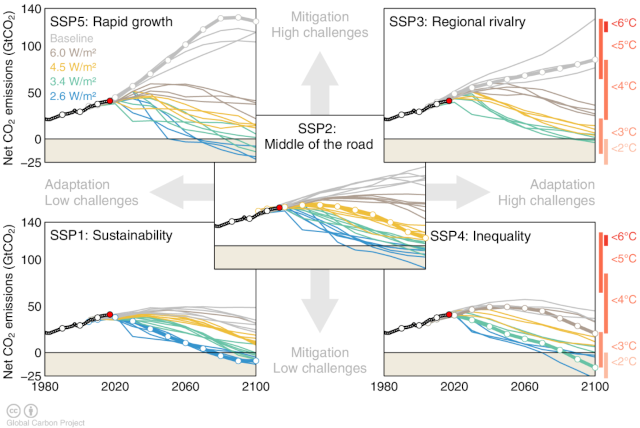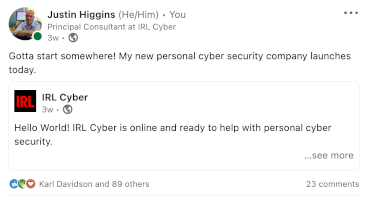How I built a money losing business in only six months
06 Dec 2022 - Justin Higgins
Most people probably figure this out a lot sooner, but I was about 40 when I realised that working for a living wasn’t a temporary thing I’d only have to put up with for a bit. I’d always figured I’d get that money thing sorted out, then find a way to do my bit to improve the world. As I lurched into my fifth decade and with my own mortality becoming more apparent every day it gradually dawned on me that if I wanted to contribute to a better future it was now or never.
Even leaving them in a hot car didn’t help
Since my children display very little in the way of evolutionary adaptation to a hotter climate, I started looking into the details of climate change. I was fascinated to discover that the UN’s panel on climate change (the IPCC) uses five ‘Shared Socioeconomic Pathways’ when modeling climate change. These five scenarios describe different outcomes in terms of climate change, but also massively divergent impacts on overall human life. You have to read between the lines a little, but in some of the scenarios, many millions of people will needlessly die, and in others, they won’t.

IPCC Shared Socioeconomic Pathways via Carbon Brief
The interesting thing is that some of the biggest variables in the scenarios aren’t just about emissions and CO2 levels. Factors like “resurgent nationalism”, “regional conflict” and “inequality” are written into the scenarios and how we deal with those issues in this century will not only define our lives, but also the lasting impact of climate change. Combined with the fact that peak human growth is almost here and it is another unprecedented issue we have to handle it at a global level, it becomes more obvious that we can’t solve problems like climate change in isolation. This convergence of factors and the global impact of humanity means improving our leadership, human rights, and preventing wars are opportunities to make a better world now and have a lasting impact the world we leave for our children.
But how tho?
Back in the present, decades of experience in the IT industry have shaped me into a seasoned professional with basically no practical skills outside of a computer. Once again I had been slow to realise that most jobs worth doing are difficult and need qualifications, so I couldn’t find a job that engaged with any of the issues I think are most important. However, I’ve long been interested in journalism and reporting, and despite the near death of that industry, we’re in a unique situation that means journalism and accountability are more important than ever.
Journalists, along with Human Rights Defenders, are unusual because they rely heavily on tech and are particularly vulnerable to cyber attack and the chilling effect of surveillance, but they often work outside of corporate or organizational infrastructure. This means they can be on their own when it comes to getting the best cyber security advice and information.
Cyber security is what I do, so this is my opportunity to help.
Getting Started
I spent the next six months researching cyber security and how it related to high risk individuals. I developed a process that uses personalised threat modeling to provide tailored security advice that wouldn’t otherwise be available to journalists and human rights defenders. I then roughed out a business model, and started looking for people to test the process, launching IRLCyber.

People said nice things on LinkedIN
Like any business, IRLCyber has to make money to keep the lights on and I hope one day it will turn a modest profit, but the reason IRLCyber exists is to help good people doing important work and that will be the guiding principle for everything we do.
So if you have any cyber security issues, we want to help YOU! Get in touch any time or check out our cyber security checklists to get started on better cyber security.
– JH